Hydrogen water canning machines preserve dissolved hydrogen (H₂) in beverages through nitrogen purging, controlled hydrogen replenishment, and airtight sealing. The process involves can preparation, hydrogen charging, gas management, and sealing, ensuring minimal H₂ loss. These systems provide high throughput, precise gas retention, and energy efficiency, maintaining hydrogen levels for over 18 months.
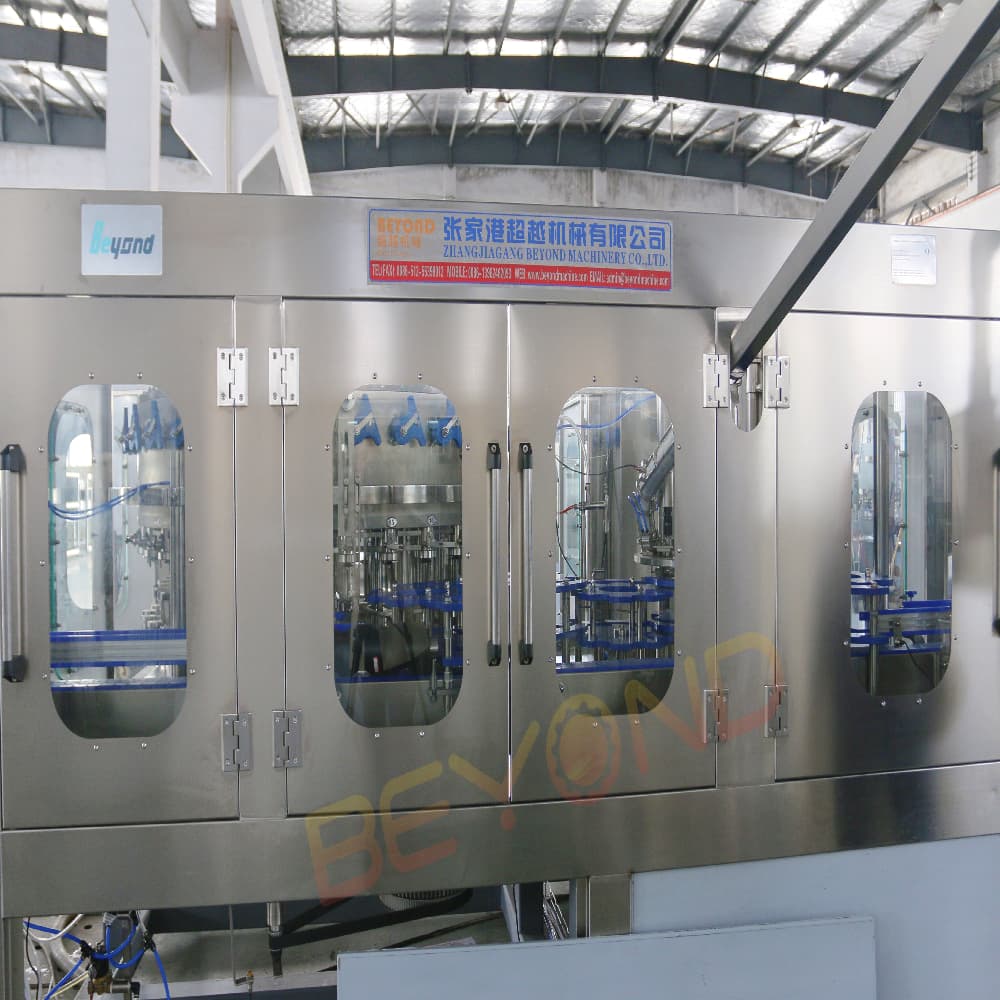
Hydrogen Water Canning Machines: Core Specifications
A hydrogen water canning machine is a pressurized packaging system designed to maintain dissolved hydrogen (H₂) levels above 1.6 ppm during aluminum can filling. Its technical superiority over standard beverage canners lies in three essential functions:
- oxygen-free liquid transfer using nitrogen purging,
- controlled hydrogen replenishment during filling
- immediate airtight sealing post-filling.
Modern units achieve this through sensor-regulated H₂ injection and gas-tight can sealing mechanisms, effectively minimizing hydrogen loss during high-volume production.
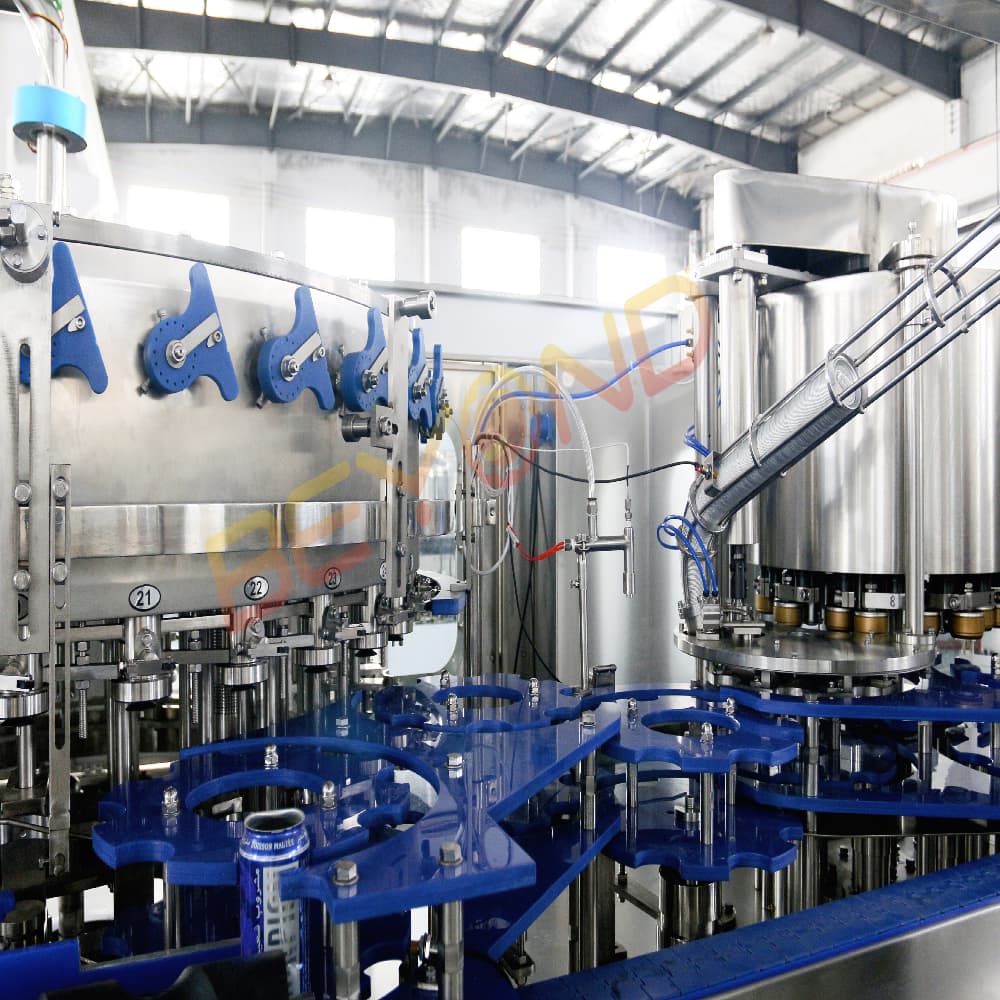
How a Hydrogen Water Canning Machine Works
A Step-by-Step Breakdown of the Hydrogen Water Canning Process
1. Pre-Rinse and Deoxygenation
The process starts with rinsing the cans to remove any dust or contaminants. At the same time, deoxygenation eliminates residual oxygen inside the cans, which is essential to prevent hydrogen degradation once the water is filled.
2. Filling with Hydrogen-Infused Water
Hydrogen-infused water is then filled into the cleaned cans using a low-turbulence system. This gentle filling method reduces agitation and helps minimize hydrogen loss, preserving the concentration of dissolved hydrogen in the water.
3. Inert Gas Purging (Nitrogen/CO₂)
After filling, the headspace of each can is purged with an inert gas—typically nitrogen or CO₂. This step displaces oxygen and forms a gas cushion that protects the hydrogen from escaping or reacting with residual air, enhancing product stability.
4. Seamless Can Sealing Under Pressure
Finally, the cans are sealed under pressure to lock in the hydrogen. This airtight, pressurized seal is vital to maintaining hydrogen levels over time and ensuring product shelf life, especially for export or longer storage cycles.
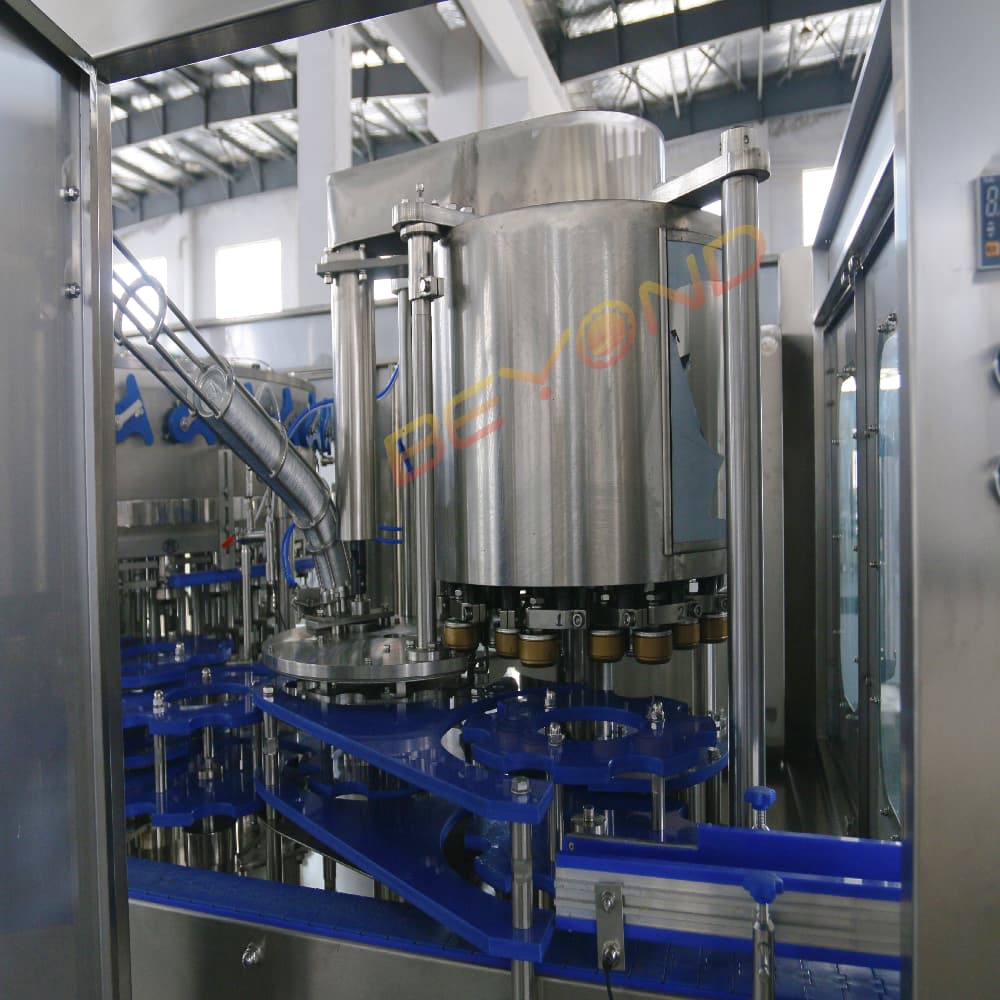
Key Features to Look for in a Hydrogen Water Canning Machine
Hydrogen Preservation Technology
-
Double-Chamber Filling or Inert Gas Shielding Systems:
These systems create a barrier of inert gas between the water and the external environment during the filling process, effectively minimizing hydrogen loss. This preserves the hydrogen concentration, ensuring the water maintains its quality. -
Integration of Anti-Oxidation Materials:
Hydrogen water canning machines should use anti-oxidation materials in their contact paths. These materials help maintain the purity of the water and keep hydrogen concentration stable throughout the production process.
High-Speed and Precision Filling
-
Flow Control Systems:
These systems ensure each can is filled with an exact quantity of hydrogen water, minimizing waste and maintaining consistent can weight. This contributes to product uniformity and quality control. -
Servo-Driven Automation:
Modern canning machines incorporate servo-driven automation for high-speed, precise filling and sealing. This is particularly beneficial for large-scale production, where speed and consistency are crucial to meeting high demand.
Material & Can Compatibility
-
BPA-Free Aluminum Cans:
BPA-free aluminum cans are essential for hydrogen water packaging. Since BPA can impact taste and product quality, these cans prevent contamination, ensuring the water remains pure and unaltered. -
Internal Coatings:
Special coatings are applied to the inside of cans to prevent metal reactions and preserve hydrogen. These coatings help ensure that the cans do not interact with the hydrogen-infused water, maintaining both product quality and gas retention.
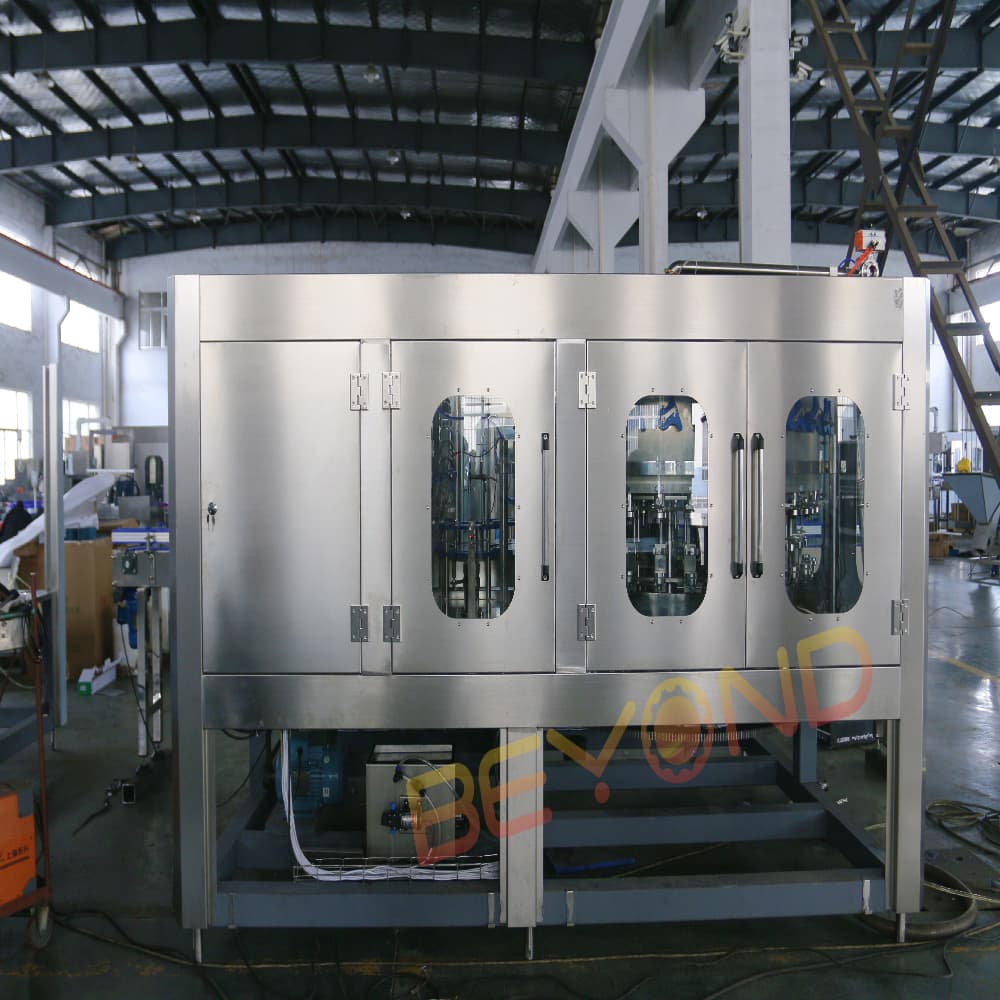
Industry Insights and Real-World Applications
Case Study:
A leading Japanese brand leveraged a rotary hydrogen water canning machine to scale its export operations, showcasing the machine’s efficiency and scalability in expanding markets. The rotary system provides high throughput while preserving the integrity of hydrogen water, making it a perfect solution for brands looking to meet growing global demand.
Industry Trend:
Small and medium-sized beverage companies are increasingly adopting compact, modular, and energy-efficient hydrogen water canning solutions. These machines are designed to meet the growing demand for hydrogen water, offering flexibility, reduced energy consumption, and space-saving features—ideal for startups and emerging brands in the beverage sector.
Regulatory Awareness:
Hydrogen water canning machines must comply with various beverage safety standards, including those set by the FDA, CE, and other regulatory bodies. Adhering to these standards ensures that the machines meet food-grade packaging requirements and maintain product safety throughout the manufacturing process.
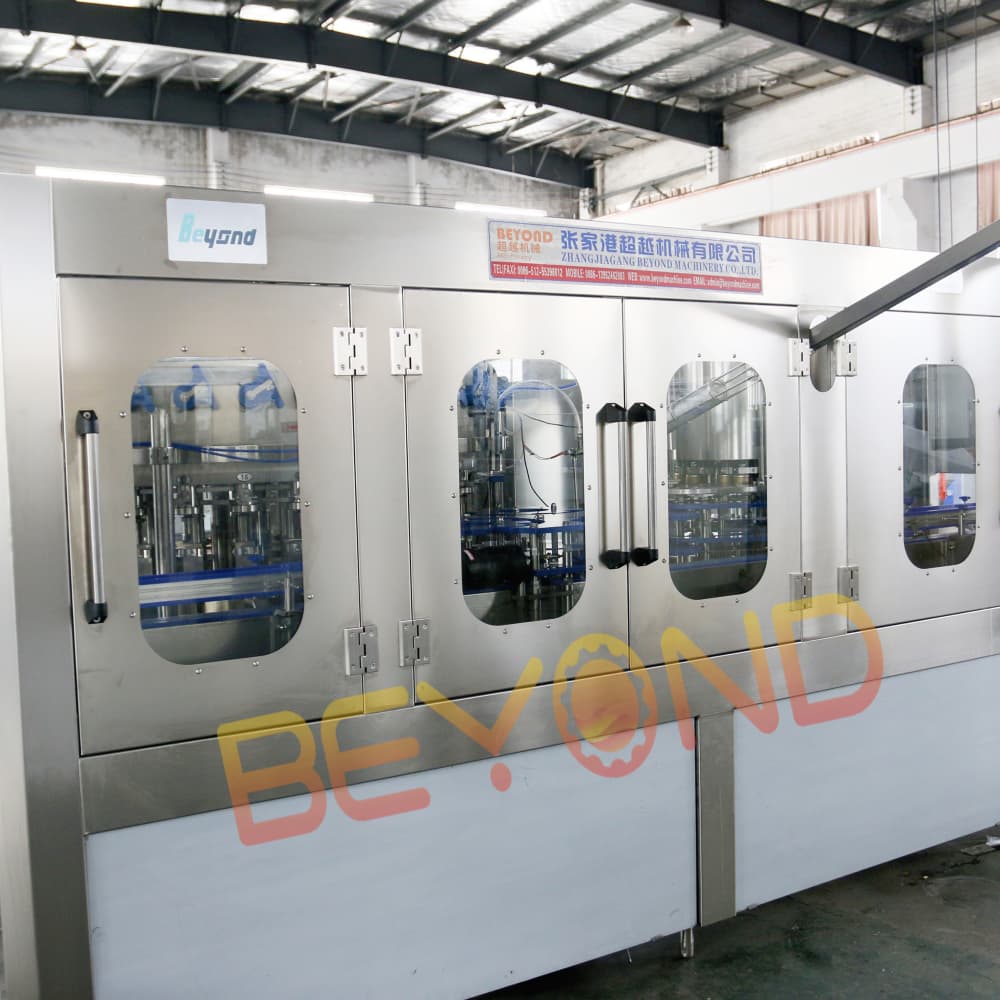
Summary
Investing in a hydrogen water canning machine is essential for beverage brands aiming to preserve the quality and potency of hydrogen-infused water. These machines use advanced technology to maintain hydrogen concentration, ensure high-speed filling, and offer flexibility for various formulations. Whether for a small startup or a large-scale operation, hydrogen water canning machines are built to meet diverse production needs.
